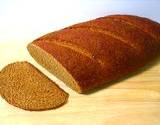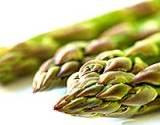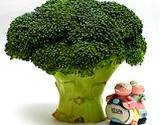|
Grandma's Vitamin K &
|
This vitamin is needed for the production of prothrombin, which is necessary for blood clotting. It is also essential for bone formation and repair, it is necessary for the synthesis of osteocalcin, the protein in bone tissue on which calcium crystallizes. Consequently, it may help prevent osteoporosis.
Vitamin K plays an important role in the intestines and aids in converting glucose in glycogen for storage n the liver, promoting healthy liver function. It may increase resistance to infection in children and help prevent cancers that target the inner linings of the organs. It aids in promoting longevity.
Vitamin K deficiency can cause abnormal and/or internal bleeding.
Vitamin K exists in three forms:
- Vitamin K1 (phylioquinone or phytonactone)
- Vitamin K2 (a family of substances called menoquinones) occur naturally
- Vitamin K3 (menadione) is a synthetic substance.
 |  |  |
Foods High in Vitamin K
Herbs that Supply Vitamin K
Foods High in Vitamin K:
- asparagus
- blackstrap molasses
- broccoli
- Brussels sprouts
- cabbage
- cabbage
- cauliflower
- dark green leafy vegetables
- egg yolks
- liver
- oatmeal
- oats
- rye
- safflower oil
- soybeans
- wheat
Herbs that contain this vitamin
- alfalfa
- green tea
- kelp
- nettle
- oat straw
- shepherd's purse
Comments
Antibiotics increase the need for dietary or supplemental Vitamin K. Because this vitamin is synthesized by bacteria in the intestines, taking antibiotics---which kill the bacteria-interfere with this process. Antibiotics also interfere with absorption of Vitamin K.
Cautions
Do not take large does of synthetic Vitamin K during the last few weeks of pregnancy. It can result in a toxic reation in the newborn.
Mega-doses of this vitamin can accumulate in the body and cause flushing and sweating.
Return from Vitamin K to Grandma's Vitamin List Guide
Return to Grandma's Herbal Remedies Home





